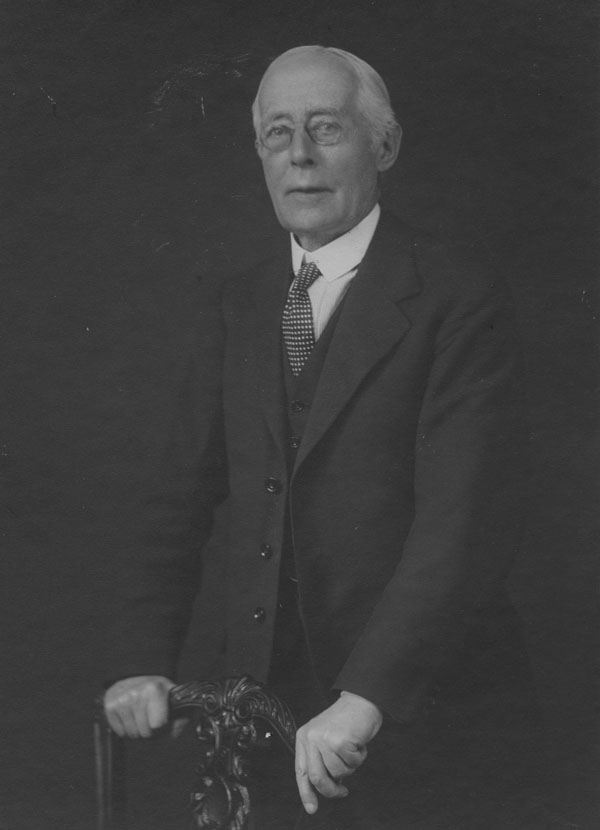Source: A Short History Of The English Law (First Edition) (1912), Chapter V, The Law Of Chattels, p. 66
Famous Edward Jenks Quotes
Source: A Short History Of The English Law (First Edition) (1912), Chapter VII, New Interests In land, p. 96
Source: A Short History Of The English Law (First Edition) (1912), Chapter II, Sources Of The Common Law, p. 17
Source: A Short History Of The English Law (First Edition) (1912), Chapter V, The Law Of Chattels, p. 67
Source: A Short History Of The English Law (First Edition) (1912), Chapter XVII, Contract And Tort In Modern Law, p. 322
Source: A Short History Of The English Law (First Edition) (1912), Chapter VI, Triumph Of The King's Courts, p. 72
Edward Jenks Quotes about laws
Source: A Short History Of The English Law (First Edition) (1912), Chapter V, The Law Of Chattels, p. 55
Source: A Short History Of The English Law (First Edition) (1912), Chapter XIV, Reform By Equity, p. 209
“Is it surprising that modern English land law should resemble a chaos rather than a system?”
Source: A Short History Of The English Law (First Edition) (1912), Chapter XV, Changers In Land Law, p. 237
Source: A Short History Of The English Law (First Edition) (1912), Chapter XIII, Modern Authorities And The Legal Profession, p. 185
Source: A Short History Of The English Law (First Edition) (1912), Chapter I, Old English Law, p. 3
Source: A Short History Of The English Law (First Edition) (1912), Chapter VIII, Methods Of Alienation, p. 106
Edward Jenks Quotes about time
Source: A Short History Of The English Law (First Edition) (1912), Chapter IV, Improved Legal Procedure, p. 40
Source: A Short History Of The English Law (First Edition) (1912), Chapter XII, Civil Procedure In The Middle Ages, p. 178
Source: A Short History Of The English Law (First Edition) (1912), Chapter IX, The Law Of Personal Property, p. 123
Source: A Short History Of The English Law (First Edition) (1912), Chapter I, Old English Law, p. 11
Edward Jenks Quotes
Source: A Short History Of The English Law (First Edition) (1912), Chapter III, Feudalism And Land Law, p. 27
Source: A Short History Of The English Law (First Edition) (1912), Chapter I, Old English Law, p. 4
Source: A Short History Of The English Law (First Edition) (1912), Chapter I, Old English Law, p. 7
Source: A Short History Of The English Law (First Edition) (1912), Chapter I, Old English Law, p. 7
Source: A Short History Of The English Law (First Edition) (1912), Chapter VIII, Methods Of Alienation, p. 121
Source: A Short History Of The English Law (First Edition) (1912), Chapter IV, Improved Legal Procedure, p. 47
Source: A Short History Of The English Law (First Edition) (1912), Chapter X, Contract And Tort, p. 132
Source: A Short History Of The English Law (First Edition) (1912), Chapter VII, New Interests In land, p. 99
Source: A Short History Of The English Law (First Edition) (1912), Chapter V, The Law Of Chattels, p. 58
Source: A Short History Of The English Law (First Edition) (1912), Chapter XVIII, Reform In The Criminal Law, p. 332
Source: A Short History Of The English Law (First Edition) (1912), Chapter VIII, Methods Of Alienation, p. 122
Source: A Short History Of The English Law (First Edition) (1912), Chapter IV, Improved Legal Procedure, p. 45
Source: A Short History Of The English Law (First Edition) (1912), Chapter IV, Improved Legal Procedure, p. 39
Source: A Short History Of The English Law (First Edition) (1912), Chapter VIII, Methods Of Alienation, p. 109
Source: A Short History Of The English Law (First Edition) (1912), Chapter XI, Criminal Law And Procedure, p. 149
Source: A Short History Of The English Law (First Edition) (1912), Chapter XIX, Modern Civil Procedure, p. 364
Source: A Short History Of The English Law (First Edition) (1912), Chapter XIX, Modern Civil Procedure, p. 360
Source: A Short History Of The English Law (First Edition) (1912), Chapter IV, Improved Legal Procedure, p. 50
Source: A Short History Of The English Law (First Edition) (1912), Chapter XVI, New Forms Of Personal Property, p. 287
